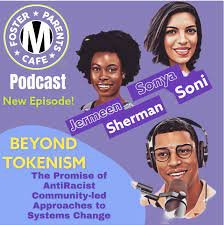Sonya Soni
Co-Founder, Our Lived Experience
Email: ssoni@pen.org




About Sonya
Sonya serves as the Director of Prison and Justice writing program at PEN America. Prior to that, she held the role of Advocacy Program Director at Boston University’s Center for Antiracist Research, founded by Dr. Ibram X. Kendi. With a background in medical anthropology and public health, her scholarship and practice lie in designing antiracist child welfare and juvenile justice systems, both in the U.S. and in India. Through community organizing, critical ethnography, community participatory research, and policy advocacy, Sonya strives to bridge the gap between academics, policymakers, and activists in order to institutionalize community voice in systemic policy change. She has worked in the U.S., South Asia, and East Africa for various youth justice community-based organizations & public systems, including the Los Angeles County Department of Child & Family Services, Harvard FXB Center for Health & Human Rights, Partners In Health, and the Office of Mayor Cory Booker. Sonya co-led the Los Angeles County Youth Commission, the first-ever governing body led by systems-impacted youth with formal power in Los Angeles who design policies for the country’s largest child welfare and juvenile justice systems. Sonya completed her B.S. in Health Promotion & Disease Prevention and Master’s of Public Health from the University of Southern California. She pursued a second master’s degree studying medical anthropology and ethics at Harvard University, where she was a Harvard Women & Public Policy Program fellow in Nepal, Harvard Hauser Center for Non-profit Organizations fellow, and Harvard Humanitarian Initiative fellow in Kashmir.
About the Community Power Spectrum Model
In the pursuit of equitable outcomes within the child welfare system, traditional approaches have fallen short, often reinforcing systemic biases and perpetuating injustice. Recognizing this urgent need for change, Sonya Soni, in collaboration with fellow researchers, introduces the groundbreaking concept of the Community Power Spectrum.
The essence of the Community Power Spectrum lies in its departure from conventional design approaches. Instead of perpetuating ahistorical and apolitical solutions, it embraces the complexities of systemic racism and injustice. By prioritizing community-led design efforts, this model empowers marginalized groups to play a central role in shaping policies that affect their lives.








